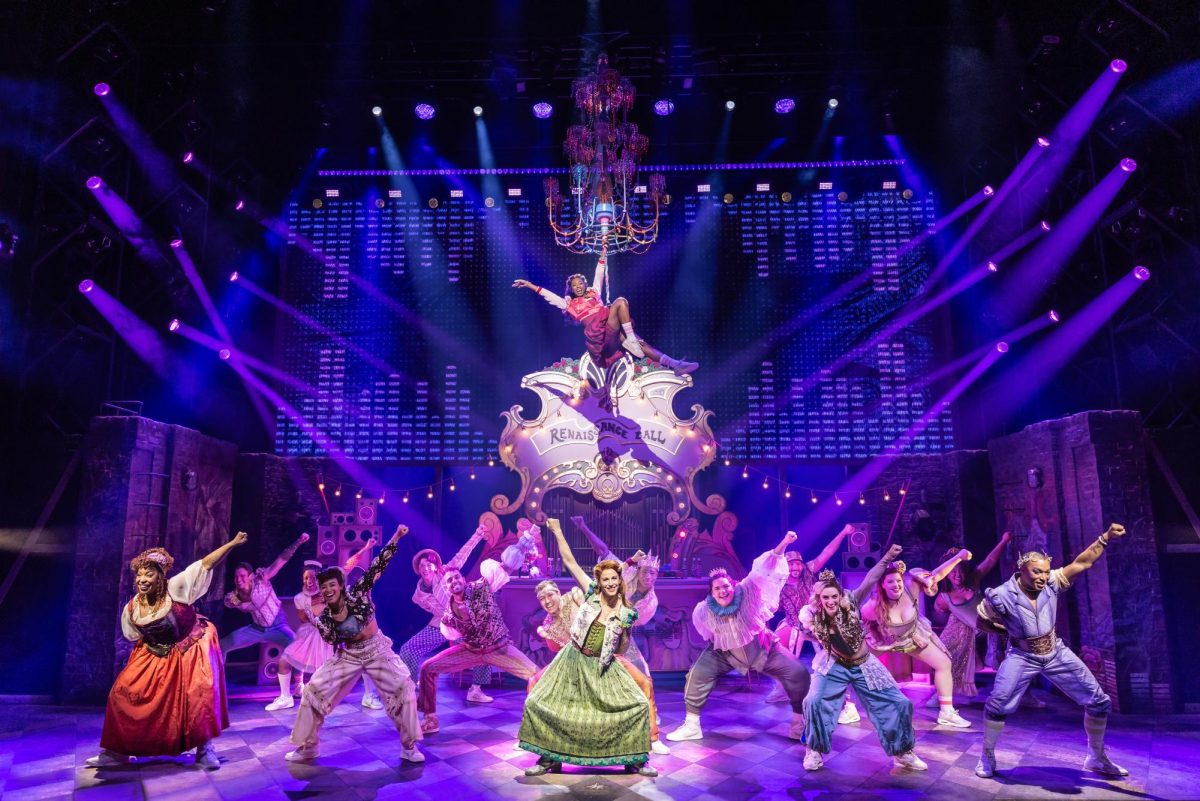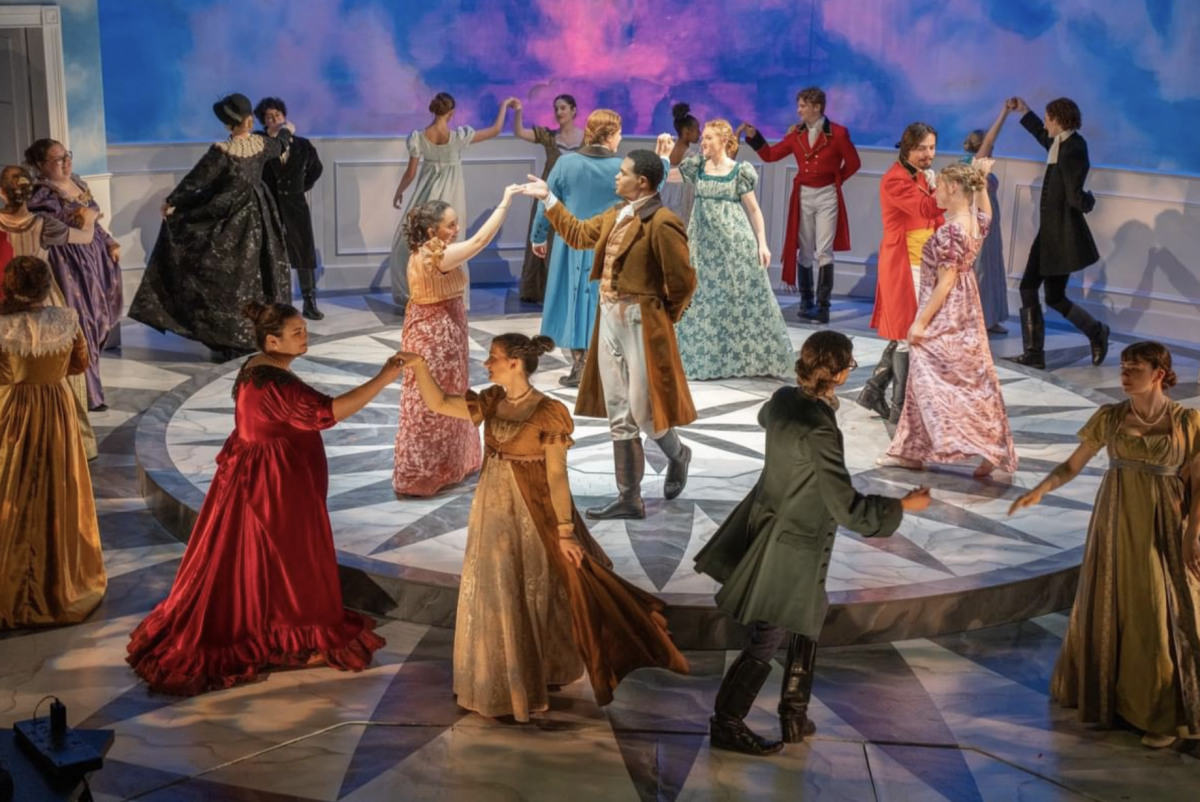We’ve come a long way in the film world since silent-film star Mary Pickford said, “Adding sound to movies would be like putting lipstick on the Venus de Milo.” We all know that movies are no longer only about the images moving around before viewers — they’re about the combination of the visual and the auditory.
In fact, some would argue that a film’s music can make it or break it. Would “Jaws” be as scary without its foreboding theme music? Would “Star Wars” be as exciting without its heroic instrumental score?
I began thinking the other day about the way popular music has fit into so many films in recent history. The songs filmmakers choose to represent the feelings in any given scene not only add to the movie-going experience, but also make the scene even more memorable and perfect in viewers’ minds. With that, I have compiled a list of some of my personal favorite soundtrack moments.
“Tiny Dancer” by Elton John — “Almost Famous”
For a music writer such as myself, William, the main character in “Almost Famous,” has the greatest job in the world — touring with, and writing about, a pop band. And it really happened to director Cameron Crowe, who based the story on his own experiences in the 1970s. As William watches the band members’ every move, he witnesses the chaos, emotions and triumph of making music in a group.
Just as things reach a low point and the band ends up stressed out and contemplating its future, “Tiny Dancer” comes on. What follows is one of the most memorable sing-alongs in recent history, as everyone forgets their troubles for a few minutes and engrosses themselves in the music. It should be a lesson to us all — even when everything seems lost, take a minute to relax and sing your heart out.
“God Only Knows” by the Beach Boys — “Boogie Nights”
Originally from the legendary “Pet Sounds” album, this Beach Boys gem sums up all the parts of “Boogie Nights” almost flawlessly. When the song is played near the end of the movie, all the characters have come together, been torn apart, and have each recovered in his or her own way, in the end coming to once again rely on each other for friendship.
In much the same way, the Beach Boys were torn apart while recording “Pet Sounds,” but nonetheless released what is possibly one of the best albums of all time.
“Mrs. Robinson” by Simon and Garfunkel — “The Graduate”
“The Graduate” has been mocked in television and in the movies so many times that it’s sometimes hard to watch the original without the parodies in mind. Nonetheless, Dustin Hoffman shines as naíve Ben Braddock, who gets roped into a steamy relationship with a red-hot older woman, played to perfection by Anne Bancroft.
As Ben rushes to interrupt a wedding and right his wrongs at the end of the movie, there’s no more appropriate soundtrack than the Simon and Garfunkel-penned classic “Mrs. Robinson.” It’s rebellious, fun and recognizes the overall coming-of-age Ben experiences throughout the movie.
“Misirlou” by Dick Dale & his Del-Tones — “Pulp Fiction”
Combining arguably the world’s best surf guitarist with one of the most original films of the past 20 years, this opening song in the Tarantino classic sets the mood perfectly. “Misirlou” is fast-paced and slightly chaotic, much like the movie it helps support, and you’d be hard-pressed to find a child of the ’90s who doesn’t instantly recognize the opening rumbling guitar riff.
Although instrumentals tend to blend in with the background of a film, such is not the case here — Dale’s smoking guitar makes even the opening credits it accompanies jump off the screen.
“Where is My Mind” by the Pixies — “Fight Club”
The Pixies are known for their haunting melody lines, which inspired everyone from Kurt Cobain to Weezer. The final scene in “Fight Club,” however, is a shining example of the way movies and music can work together to create a truly memorable experience for viewers. As the opening strains of the song begin to play, viewers think that everything just might work out for the narrator (played by Edward Norton) and quirky Marla Singer.
But just as the song’s introduction ends, exploding buildings surround the two. Marla looks at the narrator in disbelief, and he says, “You met me at a very strange time in my life.” It’s surprisingly romantic, but apocalyptic at the same time, making for the perfect ending to one of the ’90s’ most original screenplays.
There are so many more examples I don’t have room to discuss — Air’s “Playground Lover” from “The Virgin Suicides”; Kronos Quartet’s striking instrumental score to “Requiem for a Dream,” Huey Lewis’ “Power of Love” in “Back to the Future,” just to name a few. Music is no doubt a large part of any trip to the theater, as it helps solidify the mood created by the pictures on the screen. In my mind, there’s no such thing as a great movie that doesn’t have a great soundtrack.







